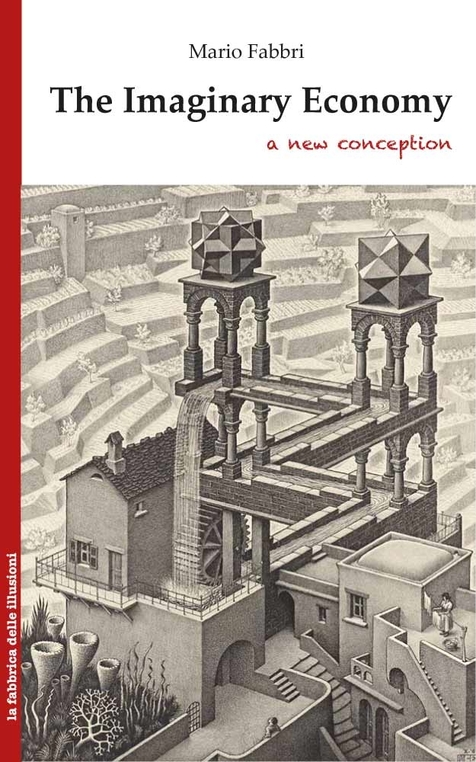
A pioneering Italian businessman reveals hidden truths about the framework of modern economics in The Imaginary Economy: A New Conception.
Beginning with the proposition that standard economic theory is based on “egregious mathematical mistakes” that don’t fit with real life, author Mario Fabbri notes that economic growth in the US from its inception until now has been amazingly stable – 1.9% per annum. There have been some deviations, as during the Great Depression, but these quickly self-correct. Why then do economists and politicians continue to assert that a particular policy or method would make huge changes in our economy?
As Fabbri points out, major economic growth is traumatic; most of us prefer to maintain our circumstances with moderate alterations over time. We adapt, consuming new products as they are available but generally sticking with our traditional consumption habits. This can be observed in Europe’s rapid recovery after World War II, followed by gradual re-stabilization.
Fabbri demonstrates that heightened production doesn’t stimulate economic growth, but instead leads to lower wages, and lower consumption. Currently, with nearly fully automated production and copious supply, US consumer habits haven’t radically changed, nor has wealth greatly increased.
What in fact has happened is the creation of non-productive jobs, which the author refers to as “white-collar” positions – accountants, managers, assistants, etc. This new service sector underpins what Fabbri calls the “imaginary economy.” Taxes and legal issues also play a role; new taxes are levied on business, complex policies are instituted, so tax consultants and lawyers become part of the service sector. The general result of such imaginary economics – unproductive jobs and unneeded workers – is a kind of irrational thinking the author calls “bureaucratic logic.” In today’s commercial context, we must all mentally grapple with this reality with little official acknowledgement of the situation.
Fabbri has created his thesis carefully, and though the subject of economics could be considered dry, readers of this unique treatment will find themselves both amazed and at times amused by Fabbri’s intelligent, well-organized and engaging presentation. Scornful from the outset of standard economic theory, Fabbri has chosen simply to bypass the mathematical projections and data-based theorems so prevalent in that realm. Instead, based on his experience and careful referencing of socio-historical material, he presents what many modern workers would consider a realistic picture of how things actually work in the job sector.
For example, he rightly points out that many modern offices can’t even discuss “efficiency” because no standards exist to measure it. A tacit understanding within most industries that there are many unproductive activities that are still deemed indispensable results in “business neuroses” besetting workers who suspect they are doing useless work. He then makes a few ameliorative suggestions for the situation that is in place, such as that workers who know themselves to be unproductive should seek work in sectors that offer greater satisfaction.
For an alluring conclusion, Fabbri tempts the reader’s imagination with a possible new direction, a means to recoup, perhaps, our sense of workplace self-worth: relocation to outer space. In all, it’s a sobering, and somewhat troubling, analysis, as there is no quick fix to current economic problems, and any fixes currently put forward are based on erroneous information. However, given the solid foundation of Fabbri’s thesis, it is a must-read to understand the economy, both past and future.
Book Links
STAR RATING
Design
Content
Editing
Get an Editorial Review | Get Amazon Sales & Reviews | Get Edited | Get Beta Readers | Enter the SPR Book Awards | Other Marketing Services























Leave A Comment